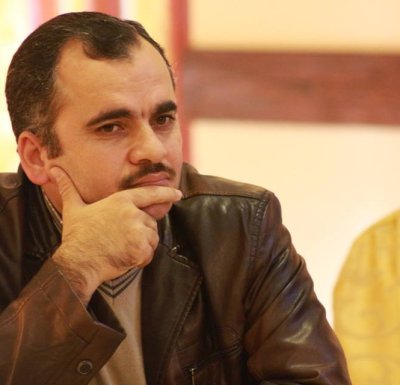Israeli officials are still preoccupied with US President Joe Biden’s announcement during the G20 Summit in New Delhi about establishing a new trade corridor from India to Europe. The corridor will pass through Saudi Arabia and Jordan and from there to Israel and the coastal port of Haifa all the way to Greece. It probably carries with it some broad understandings about Israel’s normalization with Saudi Arabia.
The corridor brings to mind the 2017 Tracks of Regional Peace project proposed by then Minister of Transportation Yisrael Katz to connect Israel Jordan Saudi Arabia and the Gulf states. It was not a geographical connection alone and wasn&rsquot limited to railways it included energy and communications. Six months ago current Israeli Transport Minister Miri Regev revealed a plan to build a railway linking the UAE and Israel including a high-speed train service between the cities of Beit She&rsquoan and Eilat.
Three months later Washington and Tel Aviv promoted a plan to establish a land route between the UAE Saudi Arabia Jordan and Israel leading directly from the Gulf to the ports on the coast of occupied Palestine to export goods to Europe promoting tourism in the process. It will allow trucks to transport goods while reducing costs significantly and shortening transportation time compared with the current situation.
Israel knows that this would have a significant impact on its economy. It could allow it to achieve economic parity with the Gulf and be integrated across the region to enhance ongoing normalization giving the process a long-term dimension. Countries expected to join the project have Islamophobia and opposition to political Islam in common which causes some to look at it ideologically.
While the project seems to push Israel’s involvement in the region by force it excludes major regional countries especially Turkiye which has already announced that there will be no such corridor without it. Ankara believes that the most suitable route for east-west traffic passes through Turkiye. Transporting goods to Greece instead of Turkiye is surprising on more than one level.
Moreover the project as proposed ignores the Turkish economy which is the largest non-oil economy in the Middle East. In addition Turkiye is the first country in the region in terms of relevant infrastructure and which is geographically and logistically integrated with Europe. The project also crosses the Mediterranean where Turkish influence cannot be ignored. Excluding countries on political or ideological grounds will put obstacles in the way of its implementation.
Oman was also ignored by the US in drafting this proposal. The Sultanate has a strategic location in the Gulf and historical ties with India. The project also undermines the Suez Canal with the financial strain on Egypt that that implies. It too is a massive regional market. Other angry reactions have come from Iraq and Lebanon.
Israelis see a natural link between Biden’s trade corridor and the ongoing discussions about Saudi normalization. They believe that the US is staking a claim for the European market in competition with China and Russia bringing India closer to the US and the West while distancing New Delhi from Moscow and Beijing.
Similarly the project removes oil-rich Arab countries from the China-Russia axis and takes them closer to Europe and the West benefiting from competition with Iran which is strengthening its position with China and Russia. Hence it was no surprise that for the first time in the history of the G20 summit China and Russia boycotted it.
Israel believes that it has a major role in the corridor project as a technological power in a variety of fields including security which makes it important for all players. In addition its geographical location is important for the land trail between India and Europe Israel stakes its claim to be the closest country to Europe with direct access to the Mediterranean.
In the meantime Israel continues to incite against its northern neighbors Syria and Lebanon &mdash they are part of the Iran-Russia axis &mdash and to the south against Egypt which opposes the project because it will affect income from the Suez Canal. This makes Israel a key player in the project which is of strategic importance to the most central interests of the US and India as well as Saudi Arabia the UAE and Jordan. However it is isolating other countries and thus paves the way for opposition from those affected by the project.
At the same time Israelis are monitoring what they believe to be risks surrounding the US corridor project which aims primarily to establish an economic and strategic defense system against China’s security and economic influence in the region. There are several obstacles in this regard as China has a complex network of relations with Saudi Arabia the UAE and Iran with whom it has signed contract agreements worth $400 billion over 25 years.
Although India is the starting point for the new corridor and has strong relations with Tel Aviv it also has close economic and military contacts with Tehran and has invested tens of billions of dollars in developing a tanker dock in Iran. It even obtained an exemption from US sanctions for investing in the Iranian port because it competes with the port that China is building in Pakistan.
All of this shows that the corridor project announced by Biden may not necessarily achieve Israel’s aspirations and ambitions in the region at the various political military and economic levels because the participating countries do not intend to be part of its strategic game. Therein lies the secret of Israel’s frustration with the possibility of seeing it come to fruition in the first place.
– Dr. Adnan Abu Amer heads the Political Science and Media Department of Umma University Open Education in Gaza. His article appeared in MEMO.











